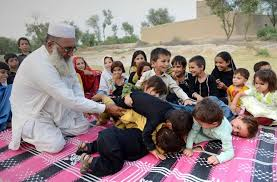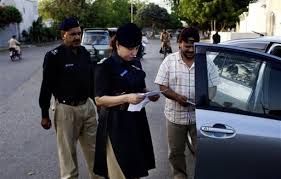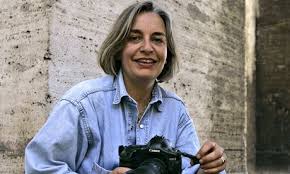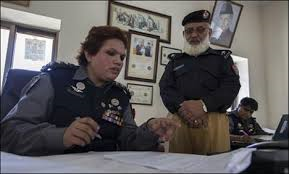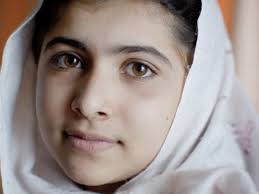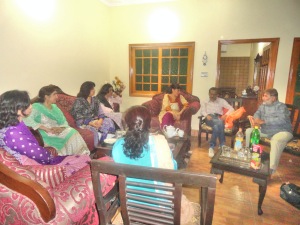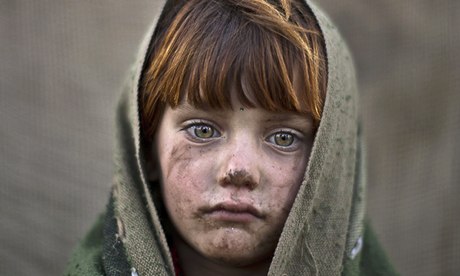 KUNDUZ, Afghanistan, July 19 — It was bad enough that the alleged rape took place in the sanctity of a mosque, and that the accused man was a mullah who invoked the familiar defense that it had been consensual sex.
KUNDUZ, Afghanistan, July 19 — It was bad enough that the alleged rape took place in the sanctity of a mosque, and that the accused man was a mullah who invoked the familiar defense that it had been consensual sex.
But the victim was only 10 years old. And there was more: The authorities said her family members openly planned to carry out an “honor killing” in the case — against the young girl. The mullah offered to marry his victim instead.
This past week, the awful matter became even worse. On Tuesday, local policemen removed the girl from the shelter that had given her refuge and returned her to her family, despite complaints from women’s activists that she was likely to be killed.
The case has broader repercussions. The head of the Women for Afghan Women shelter here where the girl took refuge, Dr. Hassina Sarwari, was at one point driven into hiding by death threats from the girl’s family and other mullahs, who sought to play down the crime by arguing the girl was much older than 10. One militia commander sent Dr. Sarwari threatening texts and an ultimatum to return the girl to her family. The doctor said she now wanted to flee Afghanistan.
The head of the women’s affairs office in Kunduz, Nederah Geyah, who actively campaigned to have the young girl protected from her family and the mullah prosecuted, resigned on May 21 and moved to another part of the country.
The case itself would just be an aberrant atrocity, except that the resulting support for the mullah, and for the girl’s family and its honor killing plans, have become emblematic of a broader failure to help Afghan women who have been victims of violence.
The result challenges hopes that Western aid and encouragement can make lasting headway on behalf of Afghan women, particularly in remote parts of the country where traditional customs are still stronger than modern law. Here, Taliban insurgents and pro-government elements often make common cause in their hatred of progress in women’s rights, most of which has come about with international funding and pressure.
Most of the anger in Kunduz has been focused not on the mullah but on the women’s activists and the shelter, which is one of seven operated across Afghanistan by W omen for Afghan Women, an Afghan-run charity that is heavily dependent on American aid, from both government and private donors.
“People know this office as the Americans’ office,” Dr. Sarwari said. “They all think the shelter is an American shelter. There isn’t a single American here,” she said.
“W.A.W. is not American-run,” said Manizha Naderi, its executive director. “Every single staff member is an Afghan. They are from the communities we work in. Our only concern is to make sure women and girls are protected and that they get justice.”
As the Western withdrawal from Afghanistan has accelerated, rights advocates are seeing a sharp difference in their funding. “We already see the signs of losing the support of the international community,” said Ms. Geyah, in an interview before she resigned. “No one’s funding new civil society programs anymore. None of the foreigners show up anymore; they’re all in hiding. And I think what gains we have achieved the last 13 years, we’re slowly losing all of them.”
The accused mullah, Mohammad Amin, was arrested and confessed to having sex with the girl after Quran recitation classes at the mosque on May 1, but claimed that he thought the girl was older and that she responded to his advances.
The girl’s own testimony, and medical evidence, supported a rape so violent that it caused a fistula, or a break in the wall between the vagina and rectum, according to the police and the official bill of indictment. She bled so profusely after the attack that she was at one point in danger of losing her life because of a delay in getting medical care.
After the two women’s officials began speaking out about the case, they started receiving threatening calls from mullahs — some of them Taliban, others on the government side — and from arbakai, or pro-government militiamen. One of their claims was that the girl was actually 17, and thus of marriageable age, not 10.
Photographs of the girl that Dr. Sarwari took in the hospital clearly show a pre-pubescent child, and the doctor said the girl weighed only 40 pounds. Few Afghans have birth records, and many do not know their precise ages. But the girl’s mother said she was 10, and a forensic examination in the hospital agreed, saying she had not yet started menstruating or developing secondary sexual characteristics.
In the photographs, which Dr. Sarwari displayed on her laptop computer recently, the girl has beautiful alabaster features and inky black hair cut in a pageboy style. She lay in her hospital bed under a quilted blanket with cartoon characters on it.
Ms. Geyah said she showed photos of the girl to government officials and prosecutors to prove that she was much too young to have consented. Dr. Sarwari said, “We wanted to give her a face, to make her real to them.”
Ms. Geyah said: “I went to the hospital when they brought her there. I was sitting next to her bed when I overheard her mother and aunt saying that her father was under tremendous pressure by the villagers to kill the girl because she had brought shame to them.”
Such honor killings in rape cases are common in Afghanistan, and are often more important to the victim’s family than vengeance against the attacker. Human rights groups say about 150 honor killings a year come to light, and many more probably go unreported.
When Dr. Sarwari, who is a pediatrician, arrived to pick up the girl at the hospital, a crowd of village elders from Alti Gumbad, the girl’s home village on the outskirts of the city of Kunduz, were gathered outside the hospital; the girl’s brothers, father and uncle were among them. Inside, Dr. Sarwari encountered the girl’s aunt, who told her she had been ordered by her husband to sneak the girl out of the hospital and deliver her to the male relatives outside. “She said they wanted to take her and kill her, and dump her in the river,” Dr. Sarwari said.
Efforts to reach the girl’s relatives by telephone were unsuccessful, and insurgent activity around Alti Gumbad made the village too dangerous for journalists to visit. “The girl’s family gave us a guarantee that they would not harm her,” said Sayed Sarwar Hussaini, head of the Kunduz police criminal investigation division. “We would not hand her back unless we were sure.”
In the hospital room, the doctor found the girl’s mother holding her child’s hand, and both were weeping. “My daughter, may dust and soil protect you now,” Dr. Sarwari quoted the mother as saying. “We will make you a bed of dust and soil. We will send you to the cemetery where you will be safe.”
Even mothers here often believe that there is no choice but to kill rape victims, who are seen as unmarriageable and therefore a lifelong burden to their families, as well as a constant reminder of dishonor. “Their men feel they have to wash their shame with blood,” Dr. Sarwari said.
The doctor took the girl away to the shelter. Afterward, Dr. Sarwari and several women’s affairs officials were threatened by the girl’s family, and by other mullahs. “They call me and curse me, and threaten to kill me and my family, and say they know where I live,” Dr. Sarwari said. “They say, once your American husbands leave Afghanistan, we will do what we want to you.” (Her husband is an Afghan doctor and war veteran.)
Dr. Sarwari has accused prosecutors and religious officials of siding with the accused rapist and ignoring the child’s plight.
“There are a lot of powerful people behind the mullah,” Dr. Sarwari said. The girl’s family knows they cannot do anything to Mr. Amin, she said, but “the girl is easy. They can get to her; she’s their daughter.” She said she feared the girl would either be killed, or forced to recant her accusations against the mullah.
Women for Afghan Women arranged for the girl to get medical treatment, and after she healed, she was returned to the shelter in Kunduz, about two weeks ago, until the police returned her to her family last Tuesday. Those caring for the girl said she had been terribly homesick and wanted to return to her family, but no one had the heart to tell her they had been conspiring to kill her.
Habib Zahori contributed reporting from Kunduz, and Jawad Sukhanyar from Kabul, Afghanistan.

